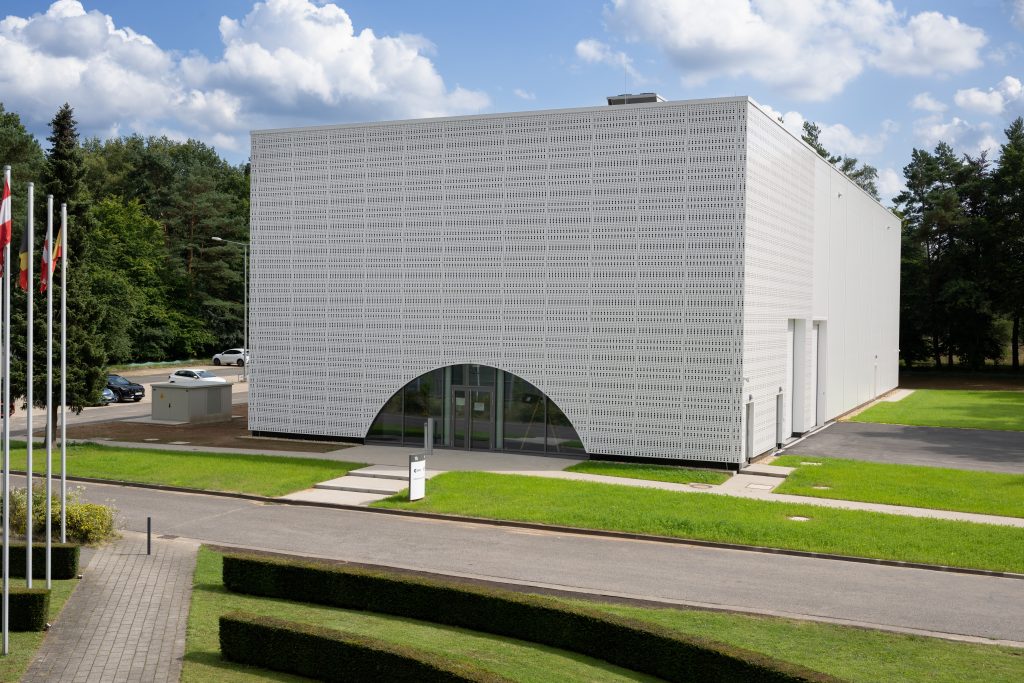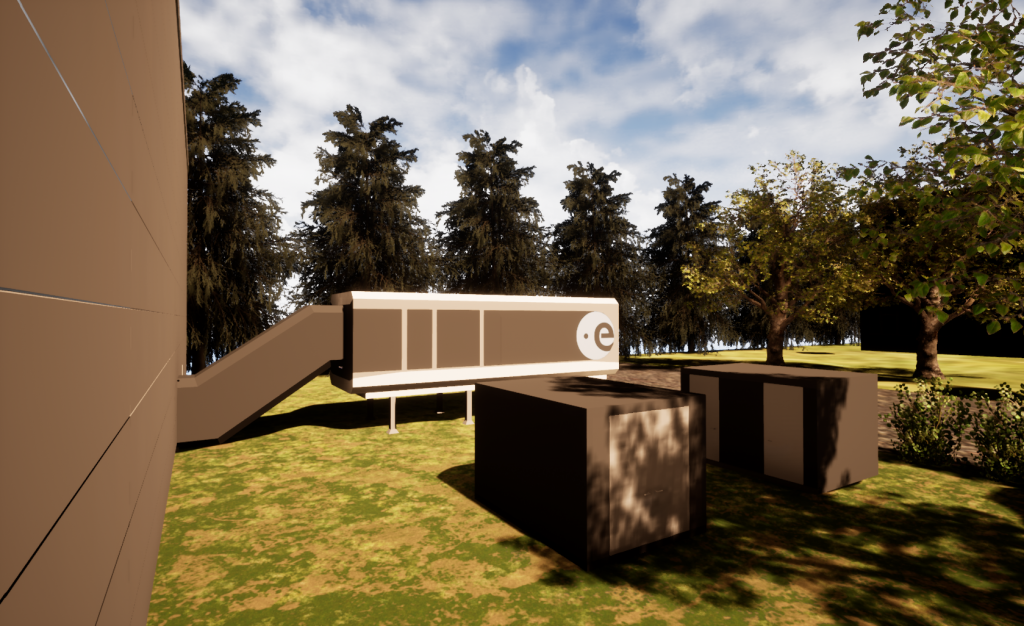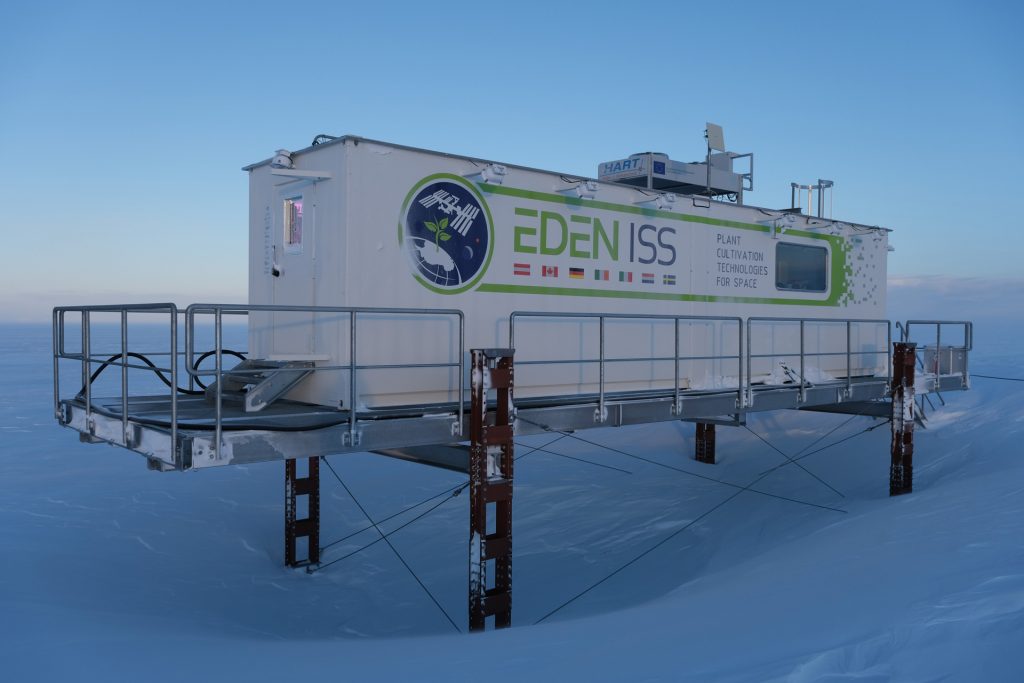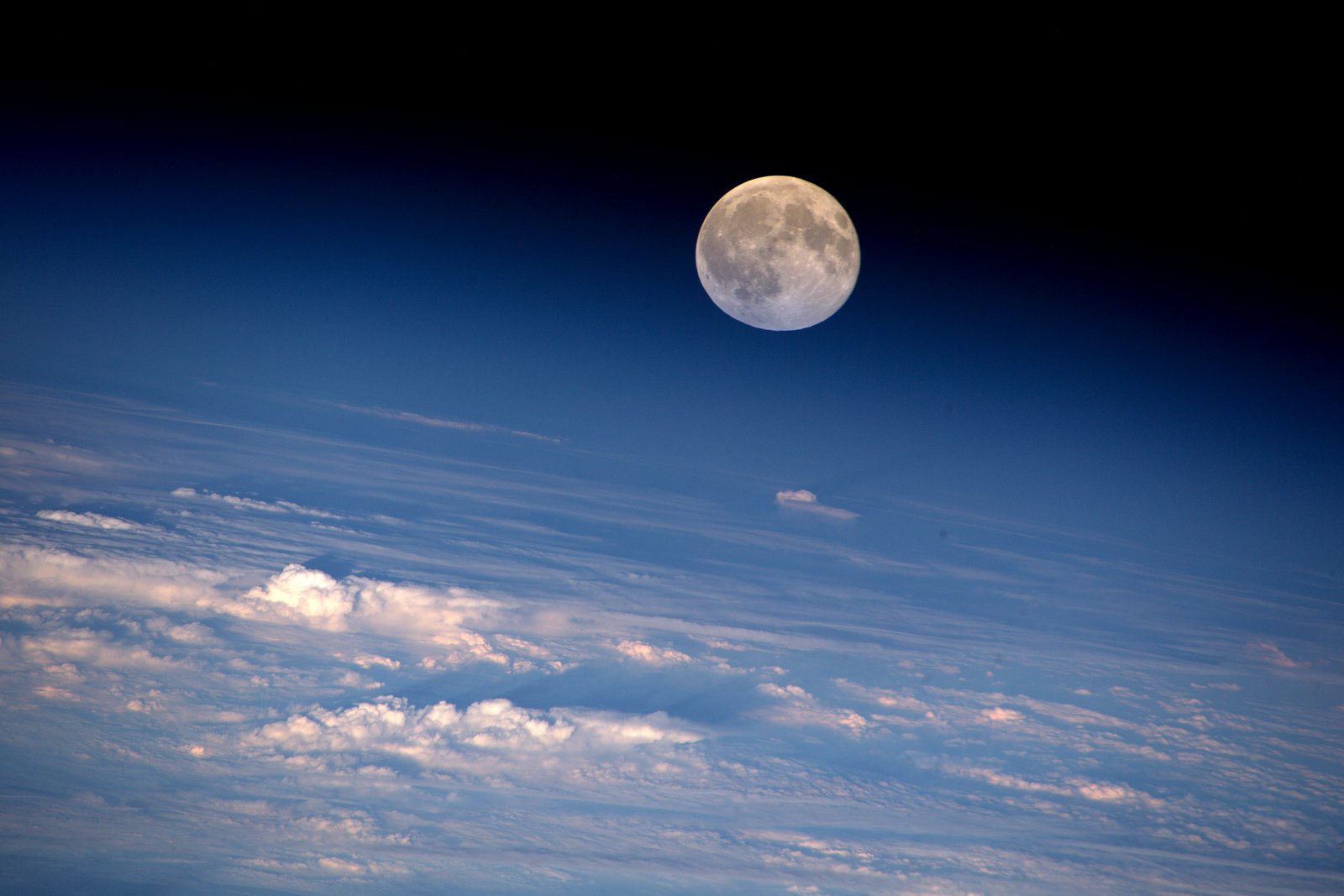The Moon on Earth
LUNA is designed to closely replicate the Moon’s surface, using volcanic sand instead of actual lunar regolith. The facility features a 700 square metre area filled with about 900 tonnes of sand extracted from basalt to mimic the fine, powdery texture of lunar soil.

LUNA analog facility. Credits: ESA/DLR
It also includes a deep floor area for realistic terrain testing, a dust chamber to simulate lunar dust conditions and an airlock to practice extravehicular activities. The facility features a gas laboratory for analysing lunar atmospheres, a dedicated workshop for equipment maintenance as well as multiple preparation and storage rooms. Together, these elements create a dynamic and immersive environment for astronauts and researchers to thoroughly test and refine their gear and techniques.
By filling LUNA with simulated lunar sand, astronauts and researchers will soon experience walking on a surface similar to the Moon’s for the first time. This setup will help refine techniques for mobility and equipment handling, which are essential for future missions to our natural satellite and beyond.
Cutting-edge testing environment
LUNA offers more than just a dusty surface. It features a Sun simulator to recreate lunar day and night cycles and a gravity suspension system to mimic the Moon’s lower gravity, crucial for testing rovers and astronaut gear.
Additionally, the terrestrial outpost will include the Future Lunar Exploration Habitat (FLEXHab), which will support further scientific activities and experiments. Located outside the ESA-DLR LUNA facility, FLEXHab will connect directly to the test bed surface. An airlock setup will allow testing and preparation for lunar spacewalks (also known as an extravehicular activity or EVA), including dust protection and suit and tool maintenance.

Virtual reality (VR) model of the Future Lunar Exploration Habitat (FLEXHab) located outside of the ESA-DLR LUNA analogue facility. Credits: ESA/DLR
LUNA will also integrate the EDEN-LUNA greenhouse, an advanced project transitioning from the EDEN-ISS greenhouse previously used in Antarctica. Set to connect with LUNA in 2025, it will enhance lunar simulation and test closed-loop life support systems, providing valuable insights for future habitats on the Moon.

EDEN ISS Antarctic greenhouse. Credit: DLR/NASA/Bunchek
A bright future for lunar exploration
Set to open this September, LUNA will become a central hub for lunar mission preparation. The facility’s realistic and controlled environment allows for thorough testing and training, ensuring that both equipment and astronauts are ready to tackle the Moon’s challenges.



